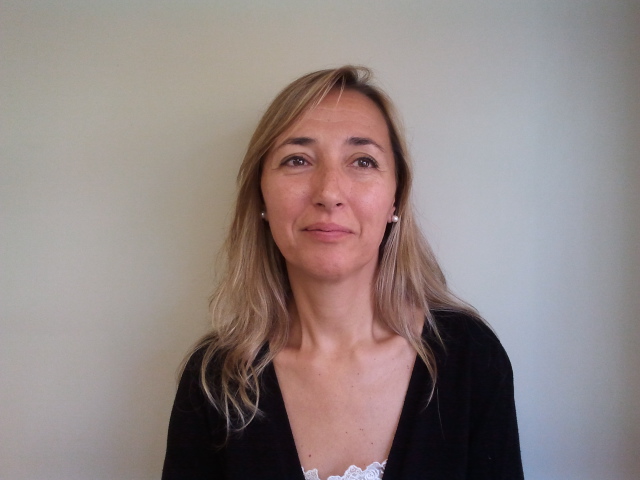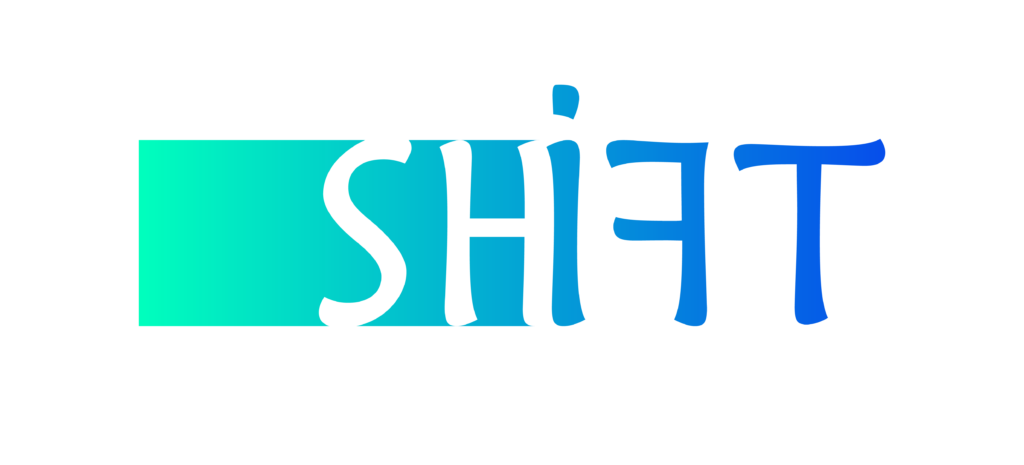The SHIFT project, funded by ERAMUS+ and coordinated by IL3-UB, responds to the priorities of the new European agenda on digitization and inclusion.
The Department of Education of Catalonia participates as a partner in the project and wants to promote through the project policies for teacher training and evaluation of the transfer of digital skills in the inclusive classroom.
We interview Maica Gil González, Head of Professional Training Services. Department of Education of Catalonia (Generalitat de Catalunya) to tell us about the SHIFT project.

- What are the objectives of the SHIFT project?
The project is based on three interrelated aspects: inclusive education to combat school dropout; digital skills –both from the point of view of the teaching staff and the students-; the evaluation of transfer of the training received related to the acquisition of digital skills in an inclusive classroom environment. In this sense, the project has three main objectives:
– Evaluate the transfer of the training received in digital skills related to the inclusion of students.
– Evaluate multidisciplinary skills, collaboration between teaching staff and support staff in the classroom.
– Create instruments that allow improving the design of training and transfer of digital skills related to inclusion of students in order to combat school failure and early school leaving and promote equity for all students.
2. What does the Shift Project mean for the Department of Education?
For the Department of Education, the Shift project poses a series of challenges:
– The implementation of an Erasmus KA2 project with European partners where different perspectives on education, inclusion and professional skills are shared.
– The possibility of creating a manual to offer directors of educational centers and other professionals involved in the design of activities, resources to evaluate, in a systematic and objective way, the transfer of the training received regarding the digital skills to promote the inclusion of all students.
– The possibility of carrying out the project from a multidisciplinary perspective in educational centers with the involvement of teaching professionals and educational support staff. In this sense, there are not many studies that have promoted collaborative work from these two areas.
3. How has belonging to a European consortium contributed to your institution? How do you see the synergies with the other partners?
Belonging to a consortium with countries as different as Finland and Cyprus, beyond detecting educational and population differences, has brought us closer to collaborative work on the reflection of teaching practice and educational support and the analysis of the competences that must be acquire to promote the educational inclusion of all students. In this particular aspect, the differences have been shortened as we share a common goal.
4. What added value do the two Intellectual Outputs of the project have for the Department of Education and for other Education departments in Spain and in Europe?
SHIFT will produce two Intellectual Outputs: the “Inclusive Classroom Evaluation Manual” and the “Learning Paths for Inclusion”.
The first, an innovative manual, will assist the assessment of transfer in the inclusive classroom by providing validated tools for an objective assessment. The second, will help to define training policies for educational professionals, taking into account the digital competencies they must have in order to promote inclusion.

5. What is the objective of the pilot in schools? Why do you think it is an important part of the project?
An important part of the project was to be able to observe and measure, in a real context, some of the aspects that would help us to create the two intellectual outputs of the project. In addition, it was essential to us to involve the true protagonists of the project: educational professionals. Thus, we set the following objectives:
– Obtain data from the participants on how they «access» the social phenomenon of teaching in the classroom.
– Obtain data on the teaching practices carried out in the classroom, through the implementation of technologies with the aim of including all the students (reality of the classrooms).
– Obtain data on the training received in the use of technologies in the classroom.
6. What are the expected results from the pilot in schools?
The results that we hope to obtain from the schools that have participated in the pilot go in two directions:
– On the one hand, measure the objectives that we have proposed in the pilot (previously mentioned).
– On the other hand, obtain the perceptions and opinions of the educational professionals who have participated on the use of the instruments used in the pilot: rubrics and in-depth interviews.
7. How do you see the relevance of the SHIFT project in the post-Covid era?
The score received by SEPIE (EU National Agency) for the financing of the project was among the first 18 that were presented in 2019. From the point of view of relevance, the quality of the implementation, the quality of the partners and the expected impact and dissemination got very good results. This means that at the time of presentation it was already relevant. During the lockdown, digital skills- of teachers, educational support staff and students- once again played a very important role, especially as regards to inclusion of those students with fewer opportunities to follow the learning process. For this reason, in the post-Covid era, we must continue to inquire about what type of training is the most efficient in order to transfer it to the classroom and be able to work to fight against premature educational dropout.
8. What impact can SHIFT have at a local, national or international level?
The results of the project, obtained from the pilot implementation and reflected in the Intellectual Outputs, must have an impact in the framework of educational centers; management must be actively involved to ensure the best training in digital skills for all educational professionals with instruments that measure transfer in classrooms, in the educational Administration which designs educational and training strategies) and internationally; to achieve synergies and strategies that help the different member states to fight against early school dropout and the inclusion of all students based on educational innovation and technology to support learning strategies.
9. How does the Department of Education plan to work for the sustainability of the project?
The Department of Education of Catalonia will use the Intellectual Outputs produced within the project to promote the training of educational professionals from the perspective of digital skills in an inclusive environment and, above all, from the perspective of multidisciplinary training, where different professional profiles cooperate to place students in the center of the educational system and help them achieve the expected educational results.









